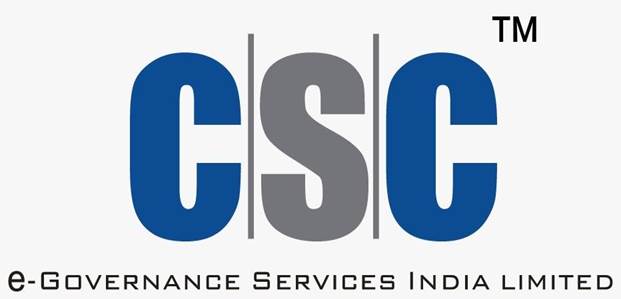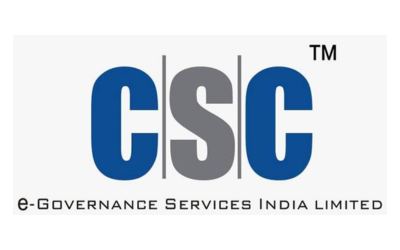Table of Contents
ToggleEmpowering Rural India: Digital Transformation for Inclusive Growth
In a significant effort to bridge the digital divide in rural India and ensure that digital services reach every citizen, the Ministry of Electronics and Information Technology (MeitY) is launching the Digital India Common Service Center (DICSC) project, beginning with Pilibhit and Gorakhpur. This initiative aims to establish one model DICSC center in nearly all gram panchayats across 10 districts, totaling 4,740 centers nationwide.

DICSC Across India
Specifically, Pilibhit will see the establishment of 720 DICSC centers, while Gorakhpur (Uttar Pradesh) will have 1,273 centers. Additional locations include Chhatrapati Sambhajinagar (formerly Aurangabad, Maharashtra) with 870 centers, Chamba (Himachal Pradesh) with 309, Khammam (Telangana) with 589, Gandhinagar (Gujarat) with 288, Mamit (Mizoram) with 100, Jodhpur (Rajasthan) with 415, Leh (Ladakh) with 95, and Puducherry state with 81 DICSC centers. The implementation and centralized technical monitoring of these centers will be managed by CSC e-Governance Services India Limited.
With a budget of ₹31.6088 crore, the project is set to run initially for six months, with the possibility of extending it to nine months. The primary goal is to create an integrated platform that provides essential e-governance services along with financial and commercial services to rural India citizens. The CSC centers in Pilibhit will offer a variety of services including Aadhaar registration, banking, financial planning, tele-law, telemedicine, education, and e-commerce support.
High-Speed Internet to Drive Growth
Each CSC will be equipped with high-speed broadband connectivity and modern infrastructure to function as a multi-functional service center. This project aims to empower Village Level Entrepreneurs (VLEs), fostering local economic growth and creating job opportunities. The initiative will also ensure transparent and sustainable service delivery through centralized technical monitoring.
Additionally, GPS-enabled mobile vans will be deployed to promote government schemes and deliver essential services directly to remote areas. This comprehensive approach is expected to significantly enhance digital literacy and improve access to services in both Pilibhit and Gorakhpur.
The DICSC project is set to transform these regions by providing critical digital services that empower local entrepreneurs and promote inclusive growth. By addressing the digital divide and enhancing access to essential services, this initiative aims to uplift the economic conditions of Pilibhit and Gorakhpur, integrating them into the broader digital economy.
Success Stories of Digital India Common Service Centers (DICSC)
Empowering Women Entrepreneurs in Pilibhit
In Pilibhit, the establishment of DICSC centers has significantly empowered women entrepreneurs. One such success story is that of Meera Devi, who utilized the services provided by the DICSC to start her own tailoring business. With access to financial planning, e-commerce support, and digital literacy programs, Meera was able to expand her business online, reaching customers beyond her local community. Her success has inspired many other women in the region to pursue their entrepreneurial dreams.
Transforming Healthcare Access in Gorakhpur
The DICSC centers in Gorakhpur have revolutionized healthcare access for rural Indian residents. Through telemedicine services, villagers can now consult with doctors and healthcare professionals without having to travel long distances. This has been particularly beneficial for elderly and disabled individuals who previously had limited access to medical care. The success of telemedicine in Gorakhpur has led to improved health outcomes and greater awareness of preventive healthcare practices.
Boosting Agricultural Productivity in Chhatrapati Sambhajinagar
In Chhatrapati Sambhajinagar, the DICSC centers have played a crucial role in boosting agricultural productivity. Farmers like Ramesh Patil have benefited from the Kisan App, which provides real-time information on weather conditions, crop prices, and best farming practices. With access to this valuable information, Ramesh has been able to make informed decisions, resulting in higher crop yields and increased income. The success of the Kisan App has encouraged more farmers to adopt digital tools for better farm management.
Enhancing Digital Literacy in Chamba
The DICSC centers in Chamba have been instrumental in enhancing digital literacy among rural Indian residents. Through various training programs and workshops, individuals of all ages have learned how to use computers, smartphones, and the internet. This newfound digital literacy has opened up new opportunities for education, employment, and communication. The success of these programs has fostered a culture of continuous learning and adaptation to new technologies in the community.
Financial Inclusion in Khammam
In Khammam, the DICSC centers have significantly contributed to financial inclusion. By offering banking services and financial planning assistance, the centers have enabled many unbanked individuals to open bank accounts and access credit facilities. One notable success story is that of Suresh Kumar, a small shop owner who used the financial services provided by the DICSC to secure a loan and expand his business. This has not only improved his financial stability but also created job opportunities for others in the community.
Promoting E-Governance in Gandhinagar
The DICSC centers in Gandhinagar have been at the forefront of promoting e-governance. Residents can now access various government services, such as Aadhaar registration, land records, and social welfare schemes, through the centers. This has streamlined administrative processes and reduced the need for physical visits to government offices. The success of e-governance initiatives in Gandhinagar has led to greater transparency and efficiency in public service delivery.
Services Provided by Digital India Common Service Centers (DICSC)
The Digital India Common Service Centers (DICSC) offer a wide range of services aimed at empowering rural Indian citizens and bridging the digital divide. Here are some of the key services provided:
Aadhaar Services
Aadhaar Enrollment and Update: Facilitating the creation and updating of Aadhaar cards for residents.
Banking and Financial Services
Banking Services: Providing basic banking services, including account opening, deposits, withdrawals, and balance inquiries.
Financial Planning: Offering financial advice and planning services to help individuals manage their finances effectively.
Loan Applications: Assisting with the application process for various types of loans.
Tele-Law Services
Legal Advice: Providing legal advice and services through video conferencing with legal experts and lawyers.
Telemedicine Services
Remote Consultations: Enabling remote consultations with doctors and healthcare professionals, improving access to medical care in rural Indian areas.
Educational Services
Online Courses: Offering a variety of online courses and skill development programs to enhance education and employability.
Digital Literacy Training: Providing training programs to improve digital literacy among rural residents.
E-Governance Services
Government Schemes: Facilitating access to various government schemes and services, such as land records, social welfare programs, and more.
Document Services: Assisting with the issuance and verification of important documents, such as birth certificates, income certificates, and more.
E-Commerce Support
Online Store Setup: Helping local businesses set up online stores and access wider markets.
E-Commerce Training: Providing training on how to effectively use e-commerce platforms to grow their business.
Utility Services
Bill Payments: Enabling the payment of utility bills, such as electricity, water, and phone bills, through the centers.
Mobile Recharge: Offering mobile recharge services for various telecom operators.
Agriculture Services
Kisan App: Providing real-time information on weather conditions, crop prices, and best farming practices to help farmers make informed decisions.
Agricultural Support: Offering advice and support for various agricultural activities and initiatives.
Insurance Services
Insurance Enrollment: Assisting with the enrollment process for various insurance schemes and policies.
Claim Assistance: Providing support for filing and processing insurance claims.
Skill Development
Vocational Training: Offering vocational training programs to enhance skills and improve employability.
Entrepreneurship Development: Providing training and support for aspiring entrepreneurs to start and grow their businesses.
Social Welfare Services
Pension Schemes: Facilitating access to pension schemes for eligible individuals.
Subsidy Programs: Assisting with the application process for various subsidy programs offered by the government.
These services provided by the DICSC centers are designed to empower rural Indian citizens, improve their quality of life, and promote inclusive growth. By offering a comprehensive range of services, the DICSC project aims to bridge the digital divide and integrate rural areas into the broader digital economy.
Benefits of High-Speed Internet
The advantages of high-speed internet connectivity in rural areas, such as:
Improved Access to Information: Enabling rural Indian citizens to access educational resources, government services, and market information.
Better Educational Opportunities: Allowing students to participate in online learning and skill development programs.
Enhanced Communication: Facilitating communication with family, friends, and business partners.
Increased Economic Activities: Enabling local businesses to reach wider markets and improve their operations.
Training and Capacity Building of DICSC
The Digital India Common Service Centers (DICSC) project places a strong emphasis on training and capacity building to ensure the effective operation and sustainability of the centers. Here are the key aspects of the training and capacity-building initiatives:
Village Level Entrepreneurs (VLEs) Training
Village Level Entrepreneurs (VLEs) are the backbone of the DICSC project. To equip them with the necessary skills and knowledge, comprehensive training programs are conducted. These programs cover various aspects, including:
Technical Skills: Training on the use of digital tools and platforms, such as the DICSC portal, e-governance services, and financial applications.
Customer Service: Enhancing customer service skills to ensure a positive experience for users accessing services at the centers.
Business Management: Providing insights into managing and operating a small business, including financial management, marketing, and record-keeping.
Digital Literacy Programs
To bridge the digital divide, digital literacy programs are conducted for rural Indian residents. These programs aim to:
Enhance Basic Digital Skills: Teaching basic computer skills, internet usage, and the operation of digital devices.
Promote Online Safety: Educating users about online safety, privacy, and cybersecurity best practices.
Encourage Digital Inclusion: Ensuring that all segments of the population, including women, elderly, and marginalized communities, have access to digital literacy training.
Capacity Building Workshops
Regular capacity-building workshops are organized to keep VLEs and other stakeholders updated on the latest developments and best practices. These workshops focus on:
New Technologies: Introducing new technologies and tools that can enhance the services provided by the DICSC centers.
Policy Updates: Informing participants about new government policies and initiatives related to digital services and e-governance.
Skill Enhancement: Offering advanced training sessions to further develop the skills of VLEs and other staff members.
E-Learning Platforms
E-learning platforms are utilized to provide continuous learning opportunities for VLEs and rural Indian residents. These platforms offer:
Online Courses: A wide range of online courses covering various topics, from digital literacy to advanced technical skills.
Webinars and Tutorials: Live webinars and recorded tutorials conducted by experts in the field.
Interactive Learning Modules: Engaging and interactive modules that facilitate self-paced learning.
Monitoring and Evaluation
To ensure the effectiveness of the training and capacity-building initiatives, regular monitoring and evaluation are conducted. This includes:
Performance Assessments: Evaluating the performance of VLEs and the impact of training programs on service delivery.
Feedback Mechanisms: Collecting feedback from participants to identify areas for improvement and make necessary adjustments to the training programs.
Impact Analysis: Analyzing the overall impact of the training and capacity-building initiatives on the success of the DICSC project.
Collaboration with Training Institutes
The DICSC project collaborates with various training institutes and organizations to deliver high-quality training programs. These collaborations ensure that the training content is relevant, up-to-date, and aligned with industry standards.
By focusing on training and capacity building, the DICSC project aims to empower VLEs and rural Indian residents, enhance the quality of services provided, and promote sustainable development in rural Indian areas. These initiatives are crucial for the long-term success and impact of the DICSC project, driving inclusive growth and digital transformation in rural India.
Future Plans and Expansion of DICSC in Rural India
The Digital India Common Service Centers (DICSC) project has ambitious plans for future expansion and development to further bridge the digital divide and promote inclusive growth in rural India. Here are some key aspects of the future plans and expansion:
Expansion to More Districts
The initial phase of the DICSC project focuses on establishing centers in 10 districts. However, there are plans to expand the project to cover more districts across the country. This expansion aims to ensure that every gram panchayat in rural India has access to a DICSC center, providing essential digital services to a larger population.
Introduction of New Services
As the project evolves, there are plans to introduce new services to meet the growing needs of rural Indian citizens. These services may include advanced telemedicine facilities, digital education platforms, e-commerce support for local artisans, and more comprehensive financial services. The goal is to create a one-stop solution for all digital needs in rural areas.
Enhanced Infrastructure
Future plans include upgrading the infrastructure of existing DICSC centers to ensure they are equipped with the latest technology and high-speed internet connectivity. This will enhance the efficiency and effectiveness of service delivery, making it easier for rural citizens to access digital services.
Training and Capacity Building
To support the expansion, there will be a continued focus on training and capacity building for Village Level Entrepreneurs (VLEs) and other stakeholders. This includes advanced training programs, workshops, and e-learning platforms to ensure that VLEs are well-equipped to manage and operate the centers effectively.
Collaboration with Private Sector
The DICSC project plans to collaborate with private sector companies to bring in additional resources, expertise, and technology. These partnerships can help in scaling the project, introducing innovative solutions, and ensuring the sustainability of the centers.
Mobile Service Units
To reach remote and underserved areas, the project will deploy more GPS-enabled mobile service units. These units will travel to remote villages, providing essential services and promoting government schemes. This approach ensures that even the most isolated communities have access to digital services.
Monitoring and Evaluation
There will be a robust monitoring and evaluation framework to track the progress and impact of the DICSC project. This includes regular assessments, feedback mechanisms, and data analysis to identify areas for improvement and ensure that the project is meeting its objectives.
Focus on Sustainability
Future plans emphasize the sustainability of the DICSC centers. This includes exploring renewable energy sources, implementing eco-friendly practices, and ensuring that the centers are financially viable in the long term. Sustainable practices will help in reducing the environmental impact and ensuring the longevity of the project.
Community Engagement
The project will continue to engage with local communities to understand their needs and preferences. This includes organizing community meetings, surveys, and feedback sessions to ensure that the services provided are relevant and beneficial to the residents.
Integration with Other Government Initiatives
The DICSC project will be integrated with other government initiatives aimed at rural development and digital inclusion. This includes programs like Digital India, Skill India, and Make in India, creating a cohesive approach to rural development and digital empowerment.
By focusing on these future plans and expansion strategies, the DICSC project aims to create a more inclusive and digitally empowered rural India. The project will continue to evolve and adapt to the changing needs of rural citizens, ensuring that they have access to the digital services and opportunities they need to thrive in the modern world.




One thought on “Digital transformation of rural India for inclusive growth”